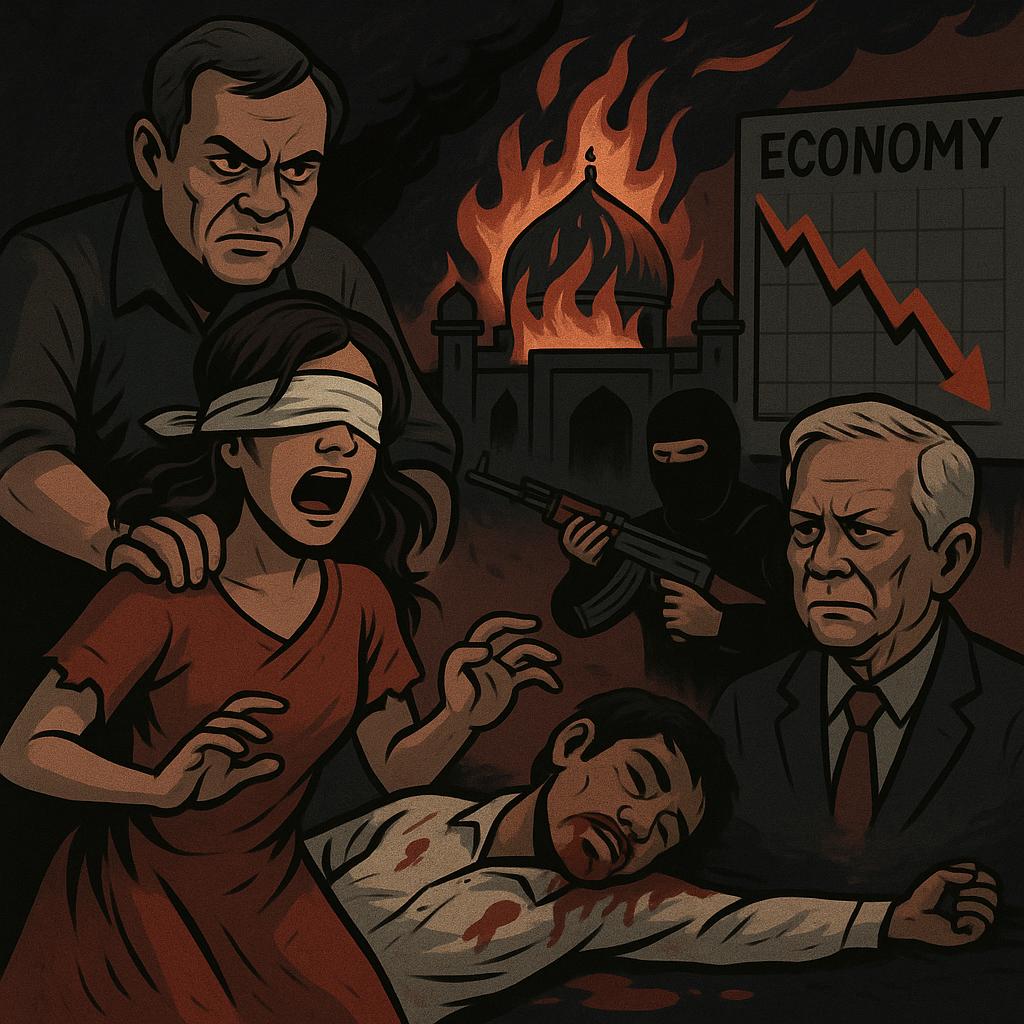By SM Zakir Hossain
Let’s try to understand what “mob” and “pressure group” are.
Mob justice generally refers to when people ignore the law or legal process and take justice into their own hands. If someone dies as a result of such mob violence, such as being brutally beaten by a mob, then it is called lynching, which is considered an extrajudicial killing. This is happening all the time in our country with the help of the patrons.
On the other hand, a pressure group is a cluster of people that does not participate directly in politics but tries to influence political decisions by exerting pressure on politically powerful people.
Such groups may consist of businessmen, members of civil society, respected academicians or teachers, and media workers. Although pressure group activities were seen during the Awami League government, they are not seen much during the current illegal fascist regime, led by Nobel laurate Muhammad Yunus.
In political science, pressure groups are also known as “lobby groups” (according to S.E. Finer) and “interest groups” (according to H. Ziegler).
Dark Chapter of Yunus Regime: Murder, rape, mob violence and economic collapse
Mobocracy: July Revolution appearing as Sniper Revolution
Global Peace Index: Bangladesh slides as Nobel Peace laureate promotes mob violence
Provoked by Yunus, mob assaults ex-CEC Nurul Huda during arrest
Mobocracy: 172 killed in mob violence under Yunus regime
Brutal Persecution of Minorities: BNP-Jamaat’s violence and distortion of reality by Yunus
Such groups provide support to their preferred political party or person through money, vehicles, and propaganda activities. When that party or person is elected and comes to power, they strive to protect the interests of that pressure group during the formulation of laws or the administration of the state.
On the other hand, those who create mobs try to achieve their own interests by spreading violence, terror, and rumours. The activities that fall under this type of mob violence are students creating chaos in schools and colleges and unjustly removing the heads of institutions, kidnapping and robbery, insulting others by beating them with shoes, taking revenge and destroying someone’s property, and setting houses on fire.

Such brutal mob behaviour is a criminal offense and absolutely unacceptable and condemnable in a civilised state. However, it is necessary to build social and legal resistance against such mob culture.
Why is there mob violence in our country?
This picture of mobs in a society or state indicates a lack of law and order, weak institutions (especially a fragile judiciary), and anarchy.
It indicates the deterioration of the judicial system, lack of legitimacy of the ruling class, illegal seizure of state power, and people’s distrust of law and order and state authorities.
On the other hand, pressure groups follow a specific policy.
They do not act in any violent or illegal way. They do not directly express distrust of the government. For example, they do not participate in vandalism or violent movements. Rather, they send a message to the government that as long as the government acts on the basis of justice, they will support the government.
So, I would like to tell the public enemy of the nation, Chief Adviser’s Press Secretary Shafiqul Alam, to learn to understand the difference between “mob creators” and “pressure creators”.
SM Zakir Hossain: Former General Secretary, Bangladesh Chhatra League